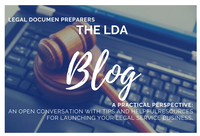|
6/22/2023 Family Law Default Stipulated Judgment Rejections in Alameda County for Out-of-State Respondents: Understanding California "Minimum Contacts" and "Personal Jurisdiction"Read NowNavigating the complexities of family law can be challenging, especially when dealing with cases involving out-of-state respondents. One particular aspect that requires careful attention in the process of obtaining a Default Stipulated Judgment (Default with Agreement) in Alameda Superior Court is establishing "personal jurisdiction". In the case of Bristol-Myers Squibb Co. v. Superior Court, the Supreme Court set forth specific requirements for establishing personal jurisdiction over an out-of-state respondent. Failure to establish personal jurisdiction may hinder the court's ability to grant a judgment that includes spousal support or property division orders.
This blog post aims to shed light on the procedural review of default and uncontested judgments submitted under the Family Code section 2336 in Alameda County Superior Court, as well as provide recommendations for navigating such cases. It is important to consult with an attorney to ensure your rights are protected throughout the legal proceedings. As a Legal Document Assistant (LDA), I encounter a wide array of individuals seeking my assistance with their legal matters. It is both rewarding and challenging to guide them through the intricacies of the legal system. However, there is a crucial aspect that I must clarify—I am unable to provide legal advice, despite the persistent inquiries from my customers. While their curiosity is understandable, it is vital to recognize the limitations placed upon me as an LDA.
To shed light on the importance of this distinction, let's delve into the findings of the California Justice Gap study. This comprehensive analysis revealed a distressing reality: a significant knowledge gap exists among the general public when it comes to understanding their legal issues. This lack of awareness is precisely why individuals often unwittingly seek legal advice when all they require is a legal analysis. |
Details
Author: Angela GrijalvaJust another entrepreneur "tryin' to make a dollar out of fifteen cent," while making a difference. Categories
All
|
|
NON-ATTORNEY DISCLOSURE:
Prepared Legal Corp. (PLC) is not a law firm. Angela Grijalva is not a lawyer and cannot give legal advice. Neither PLC nor Angela Grijalva can represent you in court. PLC can provide document preparation services at the client's direction. Services provided by PLC are not substitute for the advise of a lawyer. If you have questions regarding the section of appropriate forms, you should seek the advice of a lawyer. |
PREPARED LEGAL CORPORATION
LEGAL DOCUMENT PREPARERS Ph: (916) 750-0073 Fx: (833) 750-PREP 180 Promenade Circle, Suite 300 Sacramento, CA 95834 _______________________________ Sacramento County LDA Reg. 2020-03 Exp. 08/04/2024 _______________________________ A Minority Woman-Owned Business 🏳️🌈 |
DIVULGACIÓN DE NO ABOGADOS:
Prepared Legal Corp. (PLC) no es un bufete de abogados. Angela Grijalva no es abogada y no puede dar consejos legales. Ni PLC ni Angela Grijalva pueden representarlo en la corte. PLC puede proporcionar servicios de preparación de documentos a nombre del cliente. Los servicios provistos por PLC no sustituyen el asesoramiento de un abogado. Si tiene preguntas con respecto a la sección de formularios apropiados, debe consultar un abogado . |
Proud Member of:
Disclaimer: The information presented is intended to convey general information only and not to provide legal advice or opinions. Communication of information should not be construed as, and should not be relied upon for, legal or tax advice in any particular circumstance or fact situation. It is not intended to serve as legal advice. You should not rely upon any information discussed or presented here without first seeking legal advice from an attorney licensed to practice law in your jurisdiction.
Copyright 2020 Prepared Legal Corporation. Copyright 2016 Legal Document Preparers. All rights reserved.
Copyright 2020 Prepared Legal Corporation. Copyright 2016 Legal Document Preparers. All rights reserved.
Best LGBTQIA+ Divorce Paralegal in Sacramento, California | Family Law Support
Description: Discover the top LGBTTTQQIAA divorce paralegal in Sacramento, California, and surrounding areas. We provide expert legal support to individuals representing themselves in family law matters throughout California. Your trusted partner for a fair and just resolution.
Social Media Post:
Searching for the Best LGBTQIA+ Divorce Paralegal in Sacramento, California? Look no further!
At [Your Paralegal Service Name], we're dedicated to providing unparalleled legal support to individuals representing themselves in family law matters. We're proud to support the LGBTQIA+ community with expertise, empathy, and a commitment to justice.
Top Paralegal Services
Family Law Paralegal
Serving All of California
Get the support you deserve. Visit our website today!
#LGBTQIA #DivorceParalegal #FamilyLaw #SacramentoLegal #CaliforniaLaw
Description: Discover the top LGBTTTQQIAA divorce paralegal in Sacramento, California, and surrounding areas. We provide expert legal support to individuals representing themselves in family law matters throughout California. Your trusted partner for a fair and just resolution.
Social Media Post:
Searching for the Best LGBTQIA+ Divorce Paralegal in Sacramento, California? Look no further!
At [Your Paralegal Service Name], we're dedicated to providing unparalleled legal support to individuals representing themselves in family law matters. We're proud to support the LGBTQIA+ community with expertise, empathy, and a commitment to justice.
Top Paralegal Services
Family Law Paralegal
Serving All of California
Get the support you deserve. Visit our website today!
#LGBTQIA #DivorceParalegal #FamilyLaw #SacramentoLegal #CaliforniaLaw

 RSS Feed
RSS Feed






